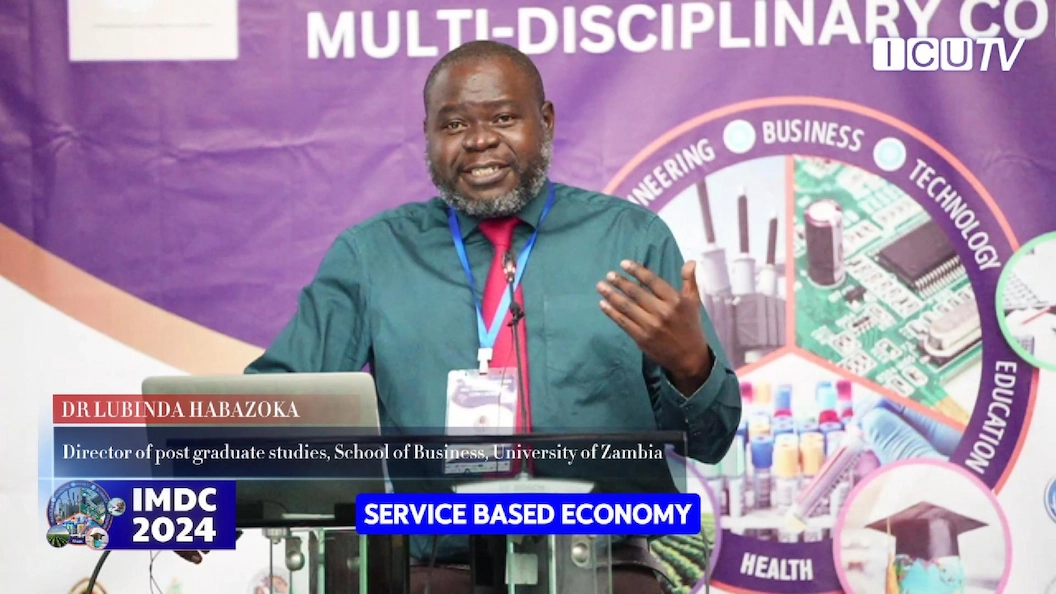Economist Dr. Lubinda Haabazoka Challenges Zambia To Rethink Economic Growth And Innovation At Imdc 2024

LUSAKA, ZAMBIA – In a compelling keynote address at the International Multi-Disciplinary Conference (IMDC2024), held by the Zambia Research and Development Center (ZRDC) in December, Dr. Lubinda Haabazoka, Director of Postgraduate Studies at the University of Zambia’s School of Business, delivered a stark reality check on Zambia’s economic trajectory, urging for a serious national conversation on development, innovation, and sustainability.
Zambia: A Country at an Economic Crossroads
Dr. Haabazoka challenged Zambians to rethink their approach to business, agriculture, and economic policies—emphasizing the need for local solutions to drive national development.
"We need to ask ourselves, how are we going to feed ourselves? How are we going to sustain our economy?" he questioned, pointing out that Zambia, with a population of 20 million, struggles to produce enough food for its people, while Israel, with just 6 million people, produces food for 25 million using advanced agricultural techniques like drip irrigation.
SMEs: The Backbone of Zambia’s Economy
With over 110,000 SMEs paying taxes and nearly 900,000 registered businesses, Haabazoka stressed that small and medium enterprises (SMEs) should be the engine of economic growth. However, he lamented the lack of government support, over-regulation, and financial hurdles that stifle entrepreneurship.
"Before an entrepreneur can even pay salaries, they must first settle taxes, NAPSA, NHIMA, and regulatory fees. This kills business before it even starts," he said, calling for policies that support rather than strangle SMEs.
Artificial Intelligence & The Future of Work
Highlighting the rise of Artificial Intelligence (AI), Haabazoka noted that businesses worldwide are leveraging AI to cut costs and improve efficiency. He cited Google laying off 30,000 workers while hiring just one AI expert for $2 billion, emphasizing that AI is changing the job market, and Zambia must adapt.
"A company no longer needs five accountants when AI can analyze financial data in seconds," he stated. Without embracing AI, Zambia risks being left behind.
Foreign Direct Investment: A Flawed Model?
In a fiery critique of Zambia’s reliance on foreign investment, Haabazoka likened the country's economic approach to "waiting for a stranger to impregnate your wife and then hoping for a child." He warned that foreign companies extract Zambia’s resources without reinvesting profits back into the economy.
"We cheer when a foreign investor announces a $5 billion investment, but until they recover that $5 billion in profits, Zambia gets nothing. This is why we must build local industries instead of relying on outsiders," he emphasized.
Time for Zambia to Innovate & Lead
Dr. Haabazoka called for urgent reforms in agriculture, taxation, and education, advocating for more investment in infrastructure, AI, and local entrepreneurship. He stressed that Zambians must take control of their economy instead of waiting for external solutions.
"We need to stop watching cooler boxes being paraded across the country and start producing our own innovations. The future is in our hands, and we must act now," he concluded.
His address left the audience with a sense of urgency—a wake-up call for Zambia to shift from passive economic participation to proactive development and innovation.
